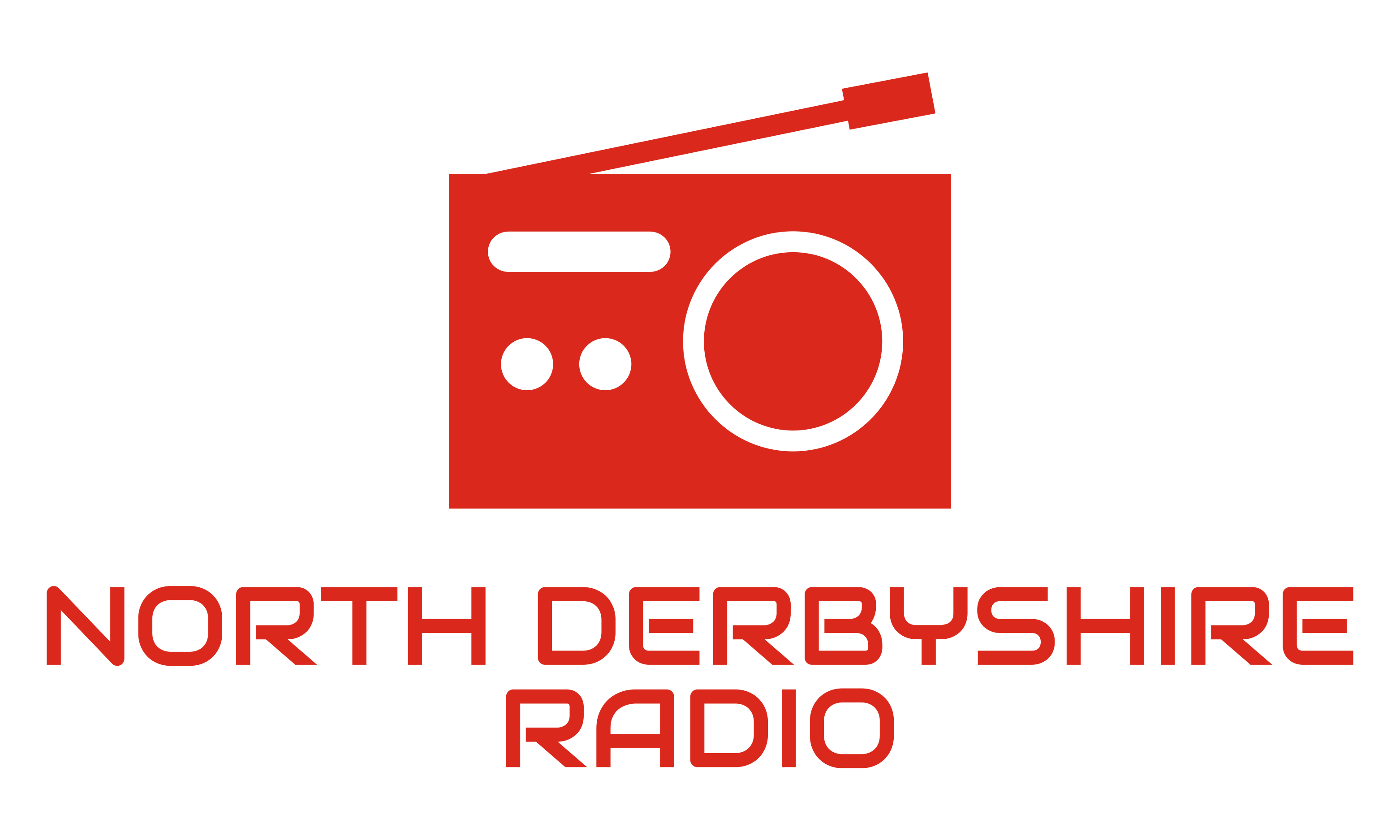A “critical incident” has been declared by Derbyshire’s health and care services due to mounting pressure caused by the heatwave, Covid-19 and pandemic backlog.
A meeting today of the NHS Derby and Derbyshire Integrated Care Board (which oversees health and care services in the county and city) was told that the “critical incident” had be called as a last resort due to unprecedented pressure on services.
Tracy Allen, the chief executive of Derbyshire Community Health Services, told the July 21 meeting that ambulances were stacking up outside hospital A&Es with patients waiting inside due to intense demand in the emergency departments themselves.
She shared evidence that the impact of pressure caused by heatwaves – resulting in an increase in respiratory illness – typically lags by a couple of days, saying intense pressure is now expected over the next five to six days.
The resulting critical incident declaration, backed by NHS England, has seen the Derbyshire healthcare system agree to buy care home beds from private providers in a bid to “decompress” acute hospitals – Royal Derby and Chesterfield Royal.
A frequent and ongoing pressure at our healthcare organisations has been caused by “bed blocking” with scores of patients medically fit for discharge remaining in hospital beds because there is not an available care home spot for them – or support packages to look after them in their own home.
This month the Derby and Burton hospital trust said it has had 120 patients medically fit for discharge – four wards worth – which is double the usual amount (pre-pandemic) of 60 patients.
Top level severe incidents have been declared numerous times over the course of the pandemic but they are typically only seen during the intense pressure of winter.
An OPEL 4 alert (Operational Pressures Escalation Levels) had been called last June due to staffing shortages linked to the then mass vaccination at Derby Arena. This had seen staff from across the county rallied to help out.
OPEL 4 means that “pressure in the local health and social care system continues to escalate leaving organisations unable to deliver comprehensive care. There is increased potential for patient care and safety to be compromised”.
Ms Allen said: “Yesterday (July 20) we found ourselves in a really critical situation in terms of that pressure right through the system and, most visibly, those risks were presenting outside of the acute hospital emergency departments in terms of the amount of calls that East Midlands Ambulance Service were stacking up and the amount of ambulances and patients waiting outside of emergency departments, the pressures on emergency departments and then the pressures right through the acute trusts in terms of the number of people they were caring for as inpatients.
“We all recognised and agreed that the pressures were such that we were dealing with really critical patient safety issues.”
She said triggering a critical incident has lead to measures aimed at increasing clinical capacity to manage patients as well as proactive responses such as raising public awareness about the ongoing issues – and what they can do to help healthcare providers.
This includes only attending A&E if you have a serious or life-threatening ailment and have already contacted other services such as urgent treatment centres, GPs, pharmacies and the NHS 111 service.
Ms Allen told the meeting: “Whilst we were under pressure yesterday, there is evidence that we are facing a rising tide over the next five or six days in terms of evidence that extreme temperatures are correlated with not insignificant increases in respiratory problems requiring inpatient admission and that that has a bit of a time lag.”
She said there are talks about getting mental health experts from Derbyshire Healthcare Services into emergency departments and to put “senior clinical decision makers” into the EMAS and NHS 111 call centres to help direct pressure to the correct locations of care.
Ms Allen said: “There was an ask from our system organisational resilience group to purchase some additional care home beds.
“We know that beds aren’t actually the right answer in the longer term but we did agree that we would try to decompress the acute trusts.
“We made that decision last night…there is clearly a financial implication to that decision but that is not something we considered.”
She said there was a potential two to three week timescale to manage the rise in healthcare system pressure, with care home beds to be bought today.
Dr Chris Weiner, chief medical director at the integrated care board, said: “Evidence from international sources is that for every one degree rise in ambient temperature above 29 you might see a 4.5 per cent increase in hospital admissions and there is a delay of between three and six days between the rise in temperature and those hospital admissions, so I think this is an area that we will have to keep an eye on and monitor and see how it pans out.
“There was extreme pressure yesterday and there is the possibility that that pressure will continue to rise over the next few days.”
Dr Buk Dhadda, a Swadlincote GP and non-executive member of the integrated care board, said there had been a “big spike” in the number of housebound elderly frail patients with respiratory illnesses. He said community nurses were out and about in the intense heat to help those patients in their own homes.
Chesterfield Royal Hospital has provided data showing its A&E attendance during the heatwave on Monday and Tuesday was broadly in line with its current average of 280 patients each day and it did not have any ambulances waiting for more than the advised 30 minutes.
Royal Derby Hospital has refused to provide data about its A&E attendances and ambulance waits.
A spokesperson for the NHS Derby and Derbyshire Integrated Care Board said: “Due to the significant and sustained demand for a number of services, the Derbyshire health and care system has declared a critical incident and is taking additional steps to prioritise and maintain safe services for patients.
“We continue to see an increased number of patients arriving at hospital by ambulance, extended waiting times to access beds in our hospitals and difficulties discharging patients due to lack of capacity across our care sector.
“Our aim is to prioritise patients with the highest level of need and ensure that we continue to be able to manage emergency care. This means that we will need to postpone some non-urgent operations where patients require a stay in hospital to accommodate those patients with the most urgent clinical need.
“We are very sorry we have had to take this step but it is important that we focus on patients needing urgent and emergency care. If you are not contacted directly, please continue to attend your appointment.
“Health and care services continue to work together to resolve the situation, and there are steps you can take to help.
“Our teams continue to work exceptionally hard and we would like to reassure our patients and the public that despite the challenges faced and the changes highlighted, essential services remain fully open for anyone who needs them, so if you require urgent medical help, please continue to come forward.
“Other things you can do to help the NHS right now, include:
- Only call 999 or attend accident and emergency departments for serious accidents and for genuine emergencies.
- When you need urgent medical care but it’s not an emergency, please visit NHS 111 online or call NHS111 for advice on how to get the care you need at any time of day or night.
- Urgent treatment centres – like the ones at Florence Nightingale, Ilkeston, Ripley, Samuel Johnson and Robert Peel Community Hospitals – can help you get the care you need for dealing with the most common issues that people attend emergency departments for. They will often be able to help you get the care you need more quickly than accident and emergency departments if you are suffering from things like a burn or a sprain.
- For other non-urgent cases, when you need medical advice and it’s not an emergency, please speak to your GP practice or a pharmacist.
- Please continue to treat all NHS and care staff with the respect they deserve. Our hard-working staff and volunteers are doing all they can to keep patients safe and supported.
- If you cannot make any NHS appointment, please contact the number on your appointment letter so that it can be reallocated to another patient.
“Services are also expecting to see an after effect from the recent record high temperatures, with exacerbations of respiratory illnesses, so there may be further measures introduced in the coming days to ensure we can maintain urgent care for the most acutely ill patients.
“If you know someone who has an existing respiratory condition, please check on them to ensure they are okay and not suffering from additional wheeziness or shortness of breath. If you have or know someone who has these symptoms, please contact NHS 111 to seek clinical advice. It is essential that you receive treatment early and seek to prevent an admission to hospital.”


